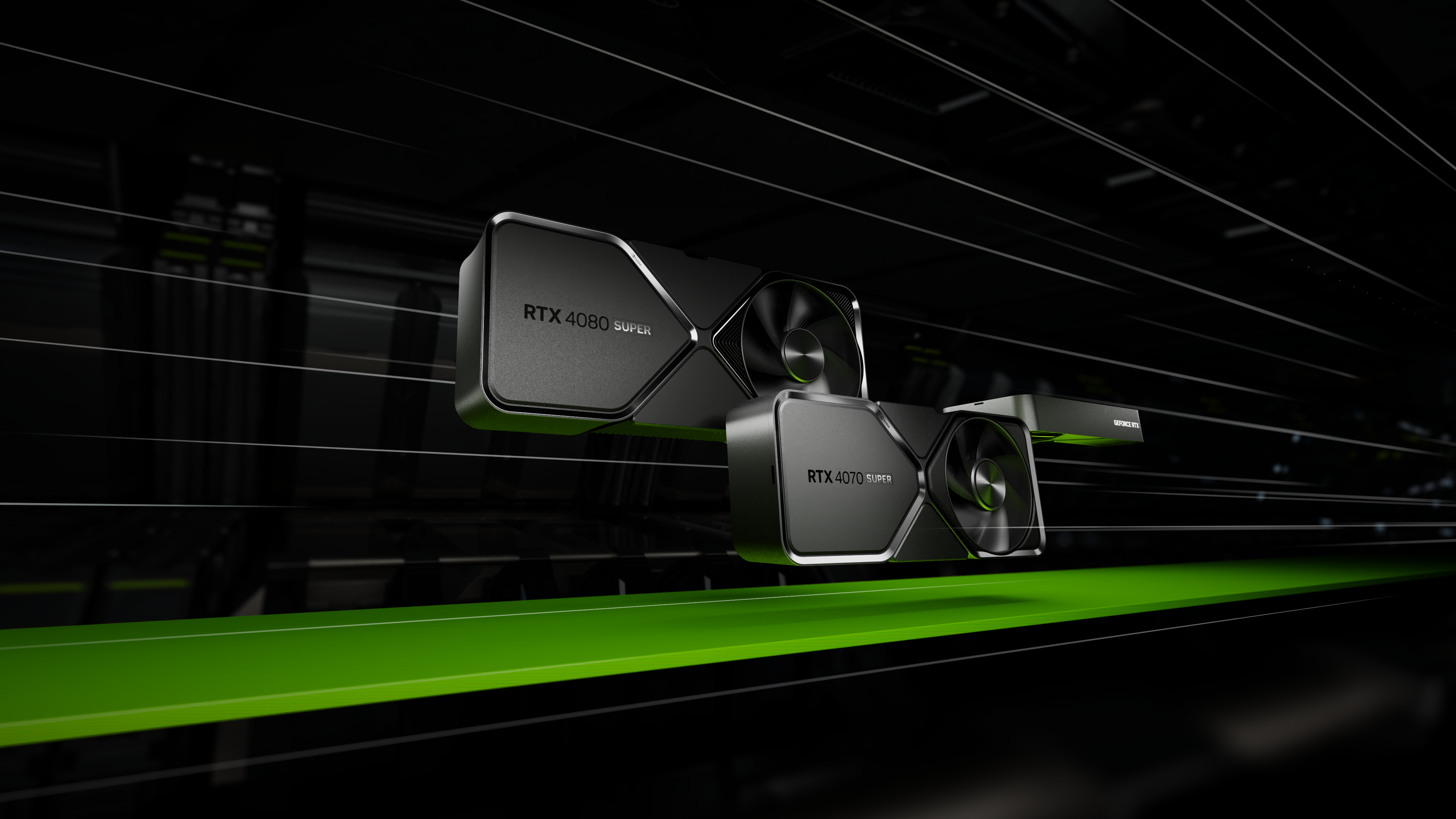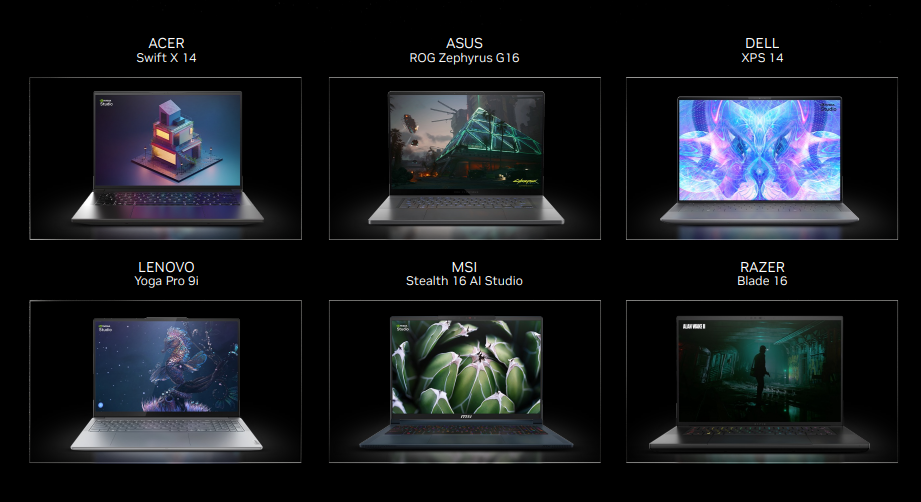 INFRA
INFRA
 INFRA
INFRA
 INFRA
INFRA
Nvidia Corp. took to the stage at the 2024 Consumer Electronics Show in Las Vegas today to unveil its latest artificial intelligence hardware, the GeForce RTX SUPER desktop graphics processing unit, which it says enables “supercharged generative AI workloads” on laptop personal computers.
The company said the new RTX SUPER GPUs will provide the power necessary to enhance generative AI experiences on PCs, with support for Nvidia TensorRT acceleration for the popular Stable Diffusion XL model for text-to-image workflows. In addition, the RTX chips support Nvidia RTX Remix for generative AI-powered texture tools, as well as Nvidia ACE microservices and video games that use Deep Learning Super Sampling technology to output higher-resolution frames from a lower-resolution input.
In an announcement, Nvidia said the new GeForce RTX 40 SUPER Series graphics cards for laptops and workstations include the GeForce RTX 4080 SUPER, 4070 Ti SUPER and 4070 SUPER for top AI performance. The GeForce RTX 4080 SUPER generates AI video 1.5 times faster — and images 1.7 times faster — than the GeForce RTX 3080 Ti GPU. The Tensor Cores in SUPER GPUs deliver up to 836 trillion operations per second, bringing generative AI capabilities to gaming, creating and everyday productivity.
The company said the RTX chips are powerful enough that they can also help to accelerate the performance of generative AI models found within the Nvidia TensorRT-LLM open-source library. Within that library, developers will be able to find pre-optimized for PC versions of many of the most popular large language models. Those models include Chat with RTX, which is a new model developed by Nvidia and released in demo mode this month, helping AI developers access and interact with their notes, documents and other content more easily.
In a statement, Nvidia Chief Executive Jensen Huang said the ability to run generative AI locally on PCs will be crucial for workloads that require privacy, latency and cost sensitivity. To run generative AI on something as small as a PC or laptop, he explained, you need not only a large installed base of AI-ready systems, but also the right developer tools for tuning and optimizing those models.
“With over 100 million RTX AI PCs and workstations, Nvidia is a massive installed base for developers and gamers to enjoy the magic of generative AI,” the CEO said.
Nvidia said PC makers including Acer Inc., ASUSTek Computer Inc., Dell Technologies Inc., HP Inc., Lenovo Group Ltd, Samsung Electronics Ltd., Micro-Star International Co. Ltd and Razer Inc. will all announce new RTX AI laptops at CES or in the coming weeks and months. As for the RTX chips themselves, they’ll start shipping to customers later this month.

Nvidia said every new A800 40GB Active RTX GPU PC and laptop will come with a three-year license for Nvidia AI Enterprise, which is the company’s AI development software.
To help developers make the most of their newest, AI-capable hardware, Nvidia also announced a new AI development toolkit called Nvidia AI Workbench, which will become available in beta this month. Nvidia AI Workbench is a platform for developers to quickly create, test and customize generative AI models and LLMs, providing streamlined access to models from repositories such as Hugging Face, GitHub and Nvidia NGC. This will allow AI development projects to be fine-tuned on local RTX systems before being deployed at scale via on-premises data centers or the public cloud, the company said.
Other software announced today includes Nvidia AI Foundation Models and Endpoints, which bundles various RTX-compatible AI models and software development kits into the HP AI Studio, which is a centralized data science platform.
Nvidia said its own developers have already busy taking advantage of the RTX GPU’s new capabilities to launch a number of generative AI applications that can run locally on their machines.
The company said it worked closely with its PC hardware partners to develop applications such as Nvidia RTX Remix, which is a tool for creating RTX-based remasters of classic video games. It will launch in beta this month, and uses generative AI to transform the basic textures found in classic games to modern, 4K resolution, physically-based rendering materials. As for the new Nvidia ACE microservices, this is said to provide access to AI-powered speech and animation models for developers who want to add intelligent and dynamic digital avatars to their games.
Also new is TensorRT acceleration for the Stable Diffusion XL Turbo and latent consistency models, which helps increase performance by up to 60%, the company said. As for Nvidia DLSS 3, this now supports frame generation capabilities, leveraging AI to increase frame rates by up to four times compared to native rendering. This capability will be feature in several upcoming video game titles, including “Horizon Forbidden West,” “Pax Dei” and “Dragon’s Dogma 2.”
Support our mission to keep content open and free by engaging with theCUBE community. Join theCUBE’s Alumni Trust Network, where technology leaders connect, share intelligence and create opportunities.
Founded by tech visionaries John Furrier and Dave Vellante, SiliconANGLE Media has built a dynamic ecosystem of industry-leading digital media brands that reach 15+ million elite tech professionals. Our new proprietary theCUBE AI Video Cloud is breaking ground in audience interaction, leveraging theCUBEai.com neural network to help technology companies make data-driven decisions and stay at the forefront of industry conversations.